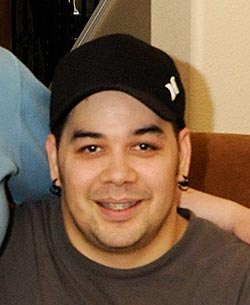The reconstruction of a soldier’s mind
Guest Column
Have you ever talked with a combat veteran of any war and questioned him/her about what it was like during their tour and gotten a blank stare from them as if they couldn’t put it into words? Or pondered why combat veterans think or act the way they do?
|
||
Combat veterans think and act differently because basic training is designed to break down people as civilians and train them to be soldiers for combat. It is in training that a soldier’s brain is rewired to a different form of thinking; however, in a combat zone, following their training can have a psychological effect on a soldier’s mind when faced with choices of life and death.
If we look back at all the wars, there was a term that described a combat veteran’s state of mind after returning home. In World War I it was called Shell Shock, in World War II, Vietnam and Korea the term was Combat Fatigue, but today it is commonly referred to as post traumatic stress disorder, or PTSD. Combat veterans who suffer the symptoms of PTSD might be hyper-vigilant, have difficulty with anger management and suffer from depression, etc. In fact, a majority of combat veterans dislike the Fourth of July because it reminds them of gunfire and explosions in combat zones.
I have been out of the military for five years now and I can see how this will affect me down the road. The choices we made in a split second when taking another person’s life affects us in so many ways. Within a matter of moments my way of thinking became concrete the first time a round hit my vehicle window near the chair I was sitting in. When I shot back I didn’t think of taking someone’s life. I thought, “It’s either me or you, buddy, and damn if I’m going out without a fight.” I know this is a cynical way to look at this, but it is how I was trained along with my brothers and sisters who served in the military.
This is why when groups of veterans get together, they feel more comfortable. It’s because we already know that the other one will have their back without it even being said. It’s the camaraderie we all share. I had a friend who I met at Ft. Hood, Texas. Clinton and I shared a room together in the barracks and we became good friends. I wish that our roles had been reversed on the day he got hit by a mortar. I had just returned from my mission and stopped by the medical center to chat with Clinton and after a couple of moments of catching up, mortars started impacting our base. After running for the concrete blocks covered in sandbags designed to protect us from incoming attacks, I noticed my friend wasn’t in there with me. When I ran out with some of his fellow medics, we saw him. He had taken a piece of shrapnel from one of the mortars to his stomach -- something I don’t ever want to see again. After the medics did what they could for him, they evacuated him. I didn’t see him until I returned back to Fort Hood and when we went out it was as if we were brothers instead of friends.
When people ask me how it was over there, I still try to act positive regarding my time in Iraq, saying it was fun for what it was. But these events have left an impression on my mind that influences how I think and view things. My doctor explains PTSD as “a normal reaction to an abnormal circumstance.”
These situations aren’t something normal people see on a day-to-day basis, and they affect every combat veteran. It took me a year after returning home to see my doctor, but during that year I was a depressed, lonely person. I was too isolated and didn’t talk to people much unless they spent time in the military because my thought was how are civilians supposed to understand what I went through. After three years of therapy, I know I’m not cured but I do know that I have gotten my life going in a positive direction. However, it is these qualities I adapted to while I was in Iraq, qualities that enabled me to survive on a day-to-day basis in a combat zone, that don’t function in civilian life.
I had someone to train me from civilian to soldier, but when I got out there was no one to train me from soldier to civilian. It was only after seeing my doctor that I was able to put my experiences into perspective and face my problems with PTSD. So if you ever find yourself questioning why a combat veteran thinks or acts a certain way, understand that their training to deal with life-and-death choices changed their thinking and how they view things.
![]()
The Advocate reserves the right to not publish comments based on their appropriateness.
![]()
Notice: Undefined variable: c5t_output in /hermes/walnacweb06/walnacweb06ac/b2874/moo.advocateonlinenet1/mhccadvocate/110509/O_SoldierColumn.php on line 207
![]()

